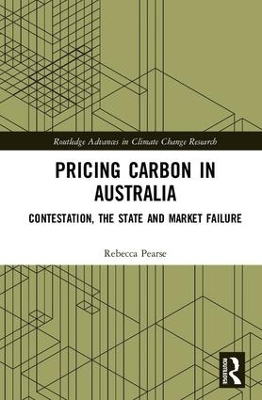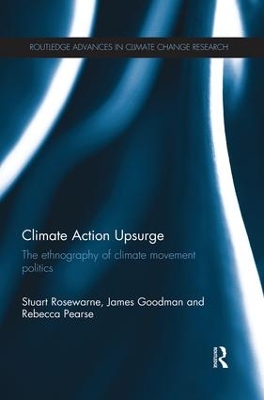Routledge Advances in Climate Change Research
2 total works
In the mid-2000s it seemed that the global carbon market would take off and spark the worldwide transition to a profitable low carbon economy. A decade on, the experiment in carbon trading is failing. Carbon market schemes have been plagued by problems and resistance to carbon pricing has come from the political Left and Right. In the Australian case, a national emissions trading scheme (ETS) was dismantled after a long, bitter public debate. The replacement ‘Direct Action Plan’ is also in disrepute.
Pricing Carbon in Australia examines the rise and fall of the ETS in Australia between 2007 and 2015, exploring the underlying contradictions of marketised climate policy in detail. Through this and other international examples, the book offers a critique of the political economy of marketised climate policy, exploring why the hopes for global carbon trading have been dashed. The Australian case is interpreted in light of a broader legitimation crisis as state strategies for (temporarily) displacing the climate crisis continue to fail. Importantly, in the wake of carbon market failure, alternative agendas for state action are emerging as campaigns for the retrenchment of fossil fuel assets and for just renewable energy transition continue transforming climate politics and policy as we know it.
This book is a valuable resource for practitioners and academics in the fields of environmental policy and politics and social movement studies.
Climate Action Upsurge
by Stuart Rosewarne, James Goodman, and Rebecca Pearse
In the late 2000s climate action became a defining feature of the international political agenda. Evidence of global warming and accelerating greenhouse gas emissions created a new sense of urgency and, despite consensus on the need for action, the growing failure of international climate policy engendered new political space for social movements. By 2007 a ‘climate justice’ movement was surfacing and developing a strong critique of existing official climate policies and engaging in new forms of direct action to assert the need for reduced extraction and burning of fossil fuels.
Climate Action Upsurge offers an insight into this important period in climate movement politics, drawing on the perspectives of activists who were directly engaged in the mobilisation process. Through the interpretation of these perspectives the book illustrates important lessons for the climate movement today. In developing its examination of the climate action upsurge, the book focuses on individual activists involved in direct action ‘Climate Camps’ in Australia, while drawing comparisons and highlighting links with climate campaigns in other locales.
The book should be of interest to scholars and researchers in climate change, environmental sociology, politics, policy and activism.

